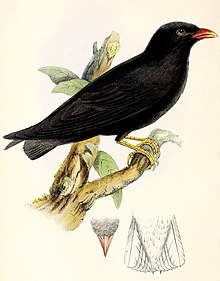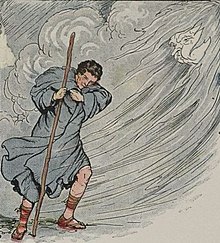Portal:Science
Science portal

Science is a strict systematic discipline that builds and organizes knowledge in the form of testable hypotheses and predictions about the world. Modern science is typically divided into three major branches: the natural sciences (e.g., physics, chemistry, and biology), which study the physical world; the social sciences (e.g., economics, psychology, and sociology), which study individuals and societies; and the formal sciences (e.g., logic, mathematics, and theoretical computer science), which study formal systems, governed by axioms and rules. There is disagreement whether the formal sciences are scientific disciplines, as they do not rely on empirical evidence. Applied sciences are disciplines that use scientific knowledge for practical purposes, such as in engineering and medicine. (Full article...)
Featured article -
Featured pictures
Vital articles
Energy (from Ancient Greek ἐνέργεια (enérgeia) 'activity') is the quantitative property that is transferred to a body or to a physical system, recognizable in the performance of work and in the form of heat and light. Energy is a conserved quantity—the law of conservation of energy states that energy can be converted in form, but not created or destroyed; matter and energy may also be converted to one another. The unit of measurement for energy in the International System of Units (SI) is the joule (J). (Full article...)
Did you know...
- ... that pacifist Theodora Wilson Wilson's science fiction book The Last Weapon was banned by the British Government in 1917?
- ... that Brian Stableford blamed the cancellation of the follow-up to his 2006 book Science Fact and Science Fiction: An Encyclopedia on the availability of information online?
- ... that the 14th-century house Maison de Jeanne was positively dated with the science of dendrochronology?
- ... that the calling patterns of the Japanese tree frog have been used in wireless network design, furthering an area of science known as swarm intelligence?
- ... that examples of artificial planets in science fiction include Riverworld, the Well World, and the Death Star?
- ... that Brazilian computer science researcher and internet pioneer Tadao Takahashi negotiated with drug lords to install internet equipment in his country?
Get involved
| This portal needs to be updated. Please help update this portal to reflect recent events or newly available information. Relevant discussion may be found on the talk page. |

|

|
Science News
- 24 July 2024 –
- Researchers from the Scottish Association for Marine Science report evidence of dark oxygen being produced from metals on the seafloor. It was previously assumed that almost all the free oxygen (O
2) on Earth was created through photosynthesis, which requires sunlight. (NPR) - 23 July 2024 –
- A study by the Oswaldo Cruz Foundation finds thirteen Brazilian sharpnose sharks off the coast of Brazil with high levels of cocaine in their muscles and livers. Experts believe that the cocaine is making its way into the waters via illegal labs where the drug is manufactured or through the excrement of drug users. (BBC News)
- 15 July 2024 – Mare Tranquillitatis pit
- In the journal Nature Astronomy, American and Italian scientists announce the discovery of a lunar cave, approximately 250 miles (400 km) from the landing site of Apollo 11. (AP) (Nature Astronomy)
- 10 July 2024 –
- Researchers from Northwestern University Feinberg School of Medicine and Harvard Medical School publish a claim for the cause and curative path for the autoimmune disease systemic lupus erythematosus in the journal Nature. (Newsmax) (Nature)
- 3 July 2024 –
- Scientists announce the discovery of the world's oldest cave painting, depicting three people gathered around a large red pig, estimated to be at least 51,200 years old, in Leang Karampurang cave in the Maros-Pangkep region, South Sulawesi, Indonesia. (Al Jazeera)
- 20 June 2024 – 2024 in archosaur paleontology
- Researchers announce the discovery the Lokiceratops rangiformis, a dinosaur species named after the Norse god Loki, in North America. The findings are published in the journal PeerJ. (ABC News)







.JPG/220px-Arches_of_mediaeval_Exe_Bridge_(5).JPG)
















.jpg/120px-Shockwave_pattern_around_a_T-38C_observed_with_Background-Oriented_Schlieren_photography_(1).jpg)









.png/120px-Diamond_(side_view).png)











.jpg/220px-Energy_Arc_(central_electrode_of_a_Plasma_Lamp).jpg)
.jpg/220px-The_Blue_Marble_(remastered).jpg)
















